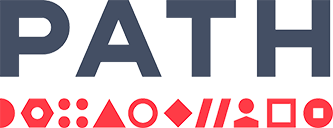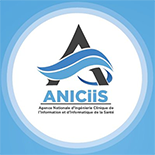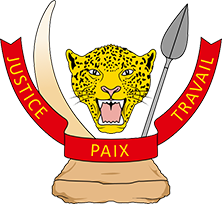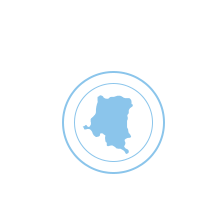
DATA FOR DEVELOPMENT
DeMOCRATIC REPUBLIC OF THE CONGO
YEAR STARTED: 2020
PROJECT
Leveraging MNO data for disease surveillance in the DRC
Supported SDG
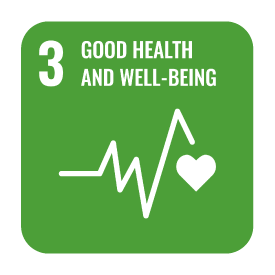
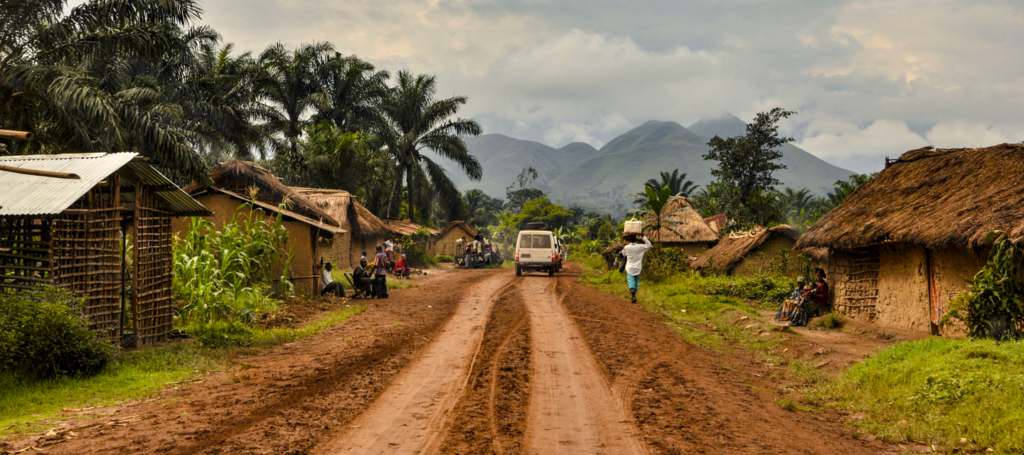
OBJECTIVES
While DIAL’s project in the Democratic Republic of the Congo (DRC) focused on leveraging mobile channels and data to support the country’s ongoing response to COVID-19, the ultimate goal was to work closely with partners to develop strategic tools, partnerships, and platforms that will play a key role in enabling the DRC to be digitally ready in terms of epidemic preparedness and response. DIAL supported the digital health ecosystem in the DRC by providing financial and technical assistance aimed at addressing the following questions:
- How can the mobile or digital ecosystem in the DRC collaborate with the Ministry of Health to ensure everyone at risk is able to make informed decisions to mitigate the effects of a disease outbreak and take protective and preventive action?
- How can the digital health ecosystem in the DRC treat emergency risk communication as a strategic role, not an add-on, in national and global emergency preparedness by establishing turnkey mobile systems and capacities?
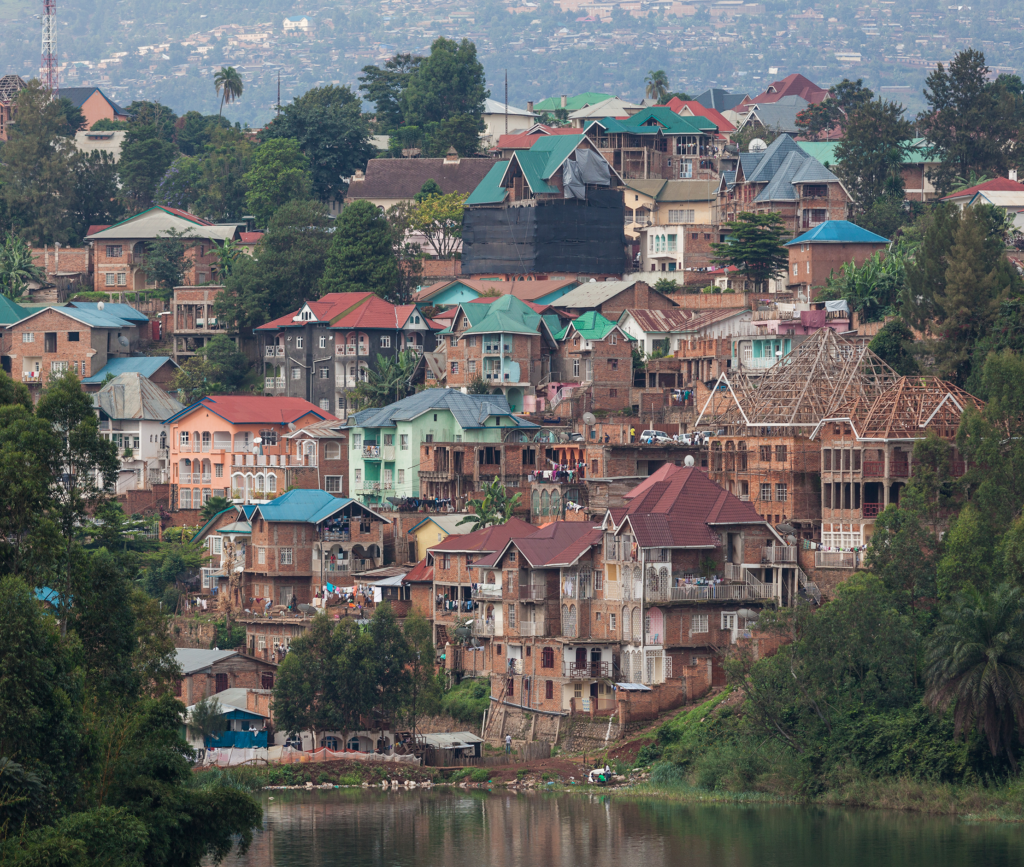
PROBLEM STATEMENT
Risk communication is one of the key pillars of responding to outbreaks. Epidemics are unpredictable and alarming events that generate great anxiety in the general public, which can lead to extreme behaviors. In disease outbreaks and epidemics, lifesaving decisions need to be made rapidly and actions must follow promptly, with the support of an informed public. While there have been significant efforts by local MNOs and development partners to launch SMS services, this is still not available at national scale, excludes illiterate populations, and lacks a feedback system. Additionally, DIAL’s assessment in the DRC uncovered a highly fragmented digital ecosystem, with no coordinated platform for digital health interventions or multistakeholder engagement.
The vastness of the DRC, its nine borders, and the diversity of its population and economy emphasize the need for the private sector to complement the public sector in addressing gaps in capacity and scaling the reach of interventions. There is an urgent need for partners to learn, share, and collaborate as a community within the digital ecosystem and across organizations and sectors, so as to fully harness the potential of mobile to support services designed for the underserved. Digital response before, during, and after a disaster is surprisingly uncharted territory in the region. Given the DRC’s significant experience dealing with multiple epidemics, lessons learned from Ebola and other outbreaks can inform the fight against COVID-19 in the short term, making the DRC a true information hub in the region’s fight against infectious diseases.
APPROACH
DIAL was tasked with the following:
- Capacity building to strengthen the Ministry of Health’s ability to leverage MNO data analytics and facilitate a demonstration use case around infectious diseases.
- Creation of a digital health working group to facilitate better coordination and integration in the delivery of digital health services and promote collaboration.
PARTNERSHIP MODEL
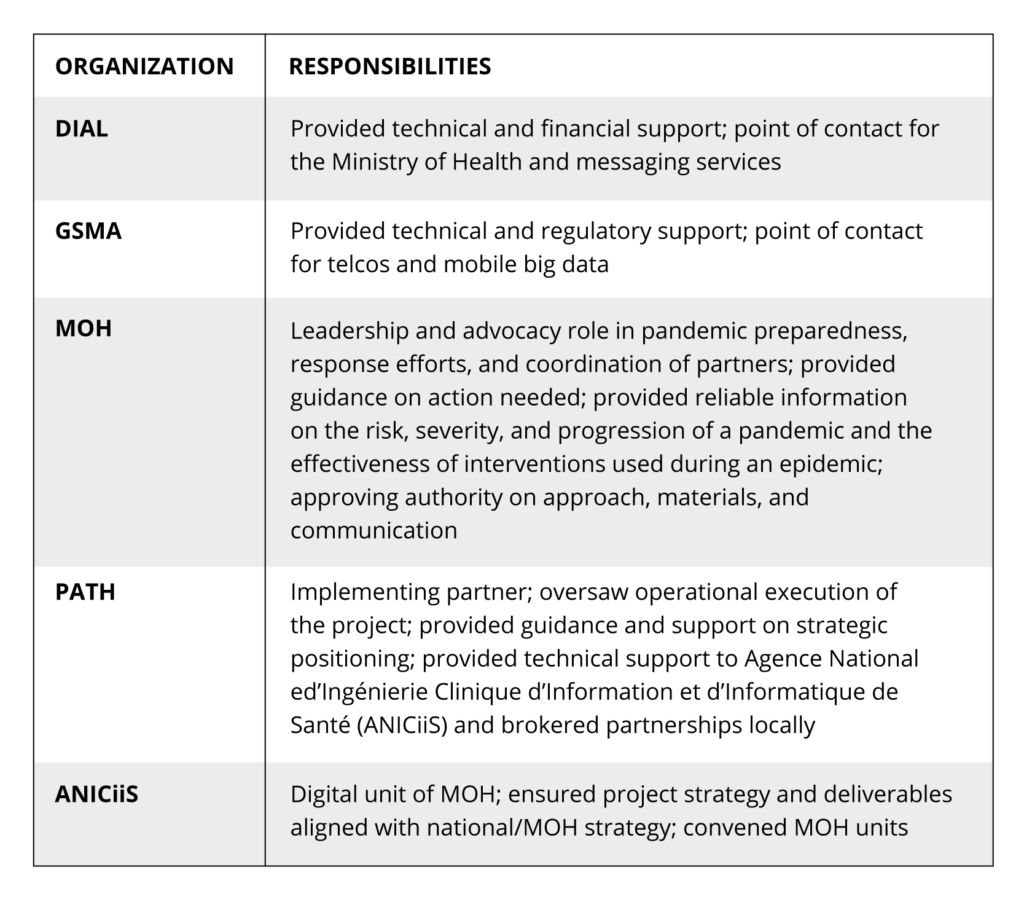
RESULTS
DIAL supported ANICiiS in the capacity of senior advisor, providing technical and administrative support. As a new agency in charge of digital health transformation, ANICiiS needed a critical framework for its operational activities.
In order to strengthen the capacity building of ANICiiS in an everchanging digital environment, DIAL organized an infodemic and digital health leadership program for the first time in the DRC.
DIAL supported the Presidential Task Force on COVID-19 and ANICiiS by providing leadership and technical support on mHero, a two-way, mobile phone-based communication system that connects ministries of health and health workers.
DIAL helped strengthen private-sector partnership and engagement by initiating a technical partnership with Airtel, Africell, Vodacom, and Orange on the mHero project to show the MNO the importance of collaborating with ANICiiS.
DIAL supported ANICiiS in working with Kinshasa Digital (KD), a web development and digital communication agency that serves as one of the key technical partners of ANICiiS and the Ministry of Health. With DIAL’s support on capacity building, KD has trained the ANICiiS technical team on using the data dashboard with MNO mobility data.
PARTNERS
DIAL convened a diverse range of stakeholders, including donors, multilaterals, NGOs, and the government, to undertake the DRC data demonstration model.

